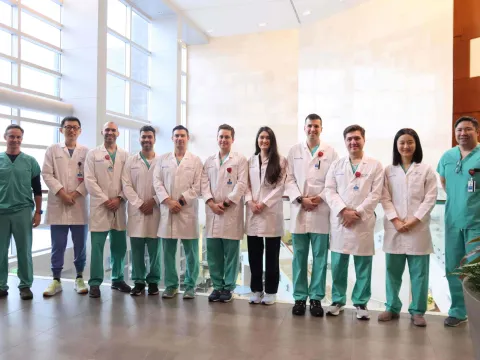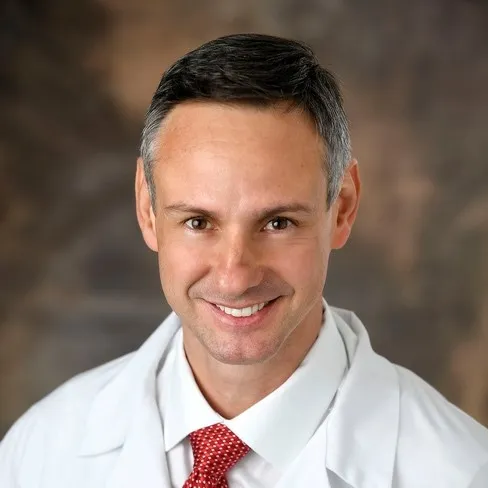
Welcome from the Program Director
The Cardiovascular Disease Fellowship at AdventHealth Orlando is a three-year ACGME-accredited fellowship and our mission is to develop cardiology clinicians of excellence and the future leaders in the field of cardiovascular disease. Our trainees will be equipped to shape the future of cardiovascular medicine though their leadership in clinical care, scientific investigation and education. Our diverse faculty provide experience and expertise in general cardiology and subspecialty disciplines in cardiology and immersion into the vibrant environment of AdventHealth Orlando hospital and clinics, allows our trainees to flourish with individualized career development. Thank you for your interest in the AdventHealth Cardiology Fellowship program.
Rodrigo Lago, MD, FACC
Program Director
Program Leadership

Rodrigo M. do Lago, MD, FACC
Program Director
Interventional Cardiologist
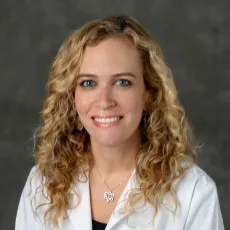
Stacy Mandras, MD
Associate Program Director
Transplant Cardiologist, Pulmonary Hypertension
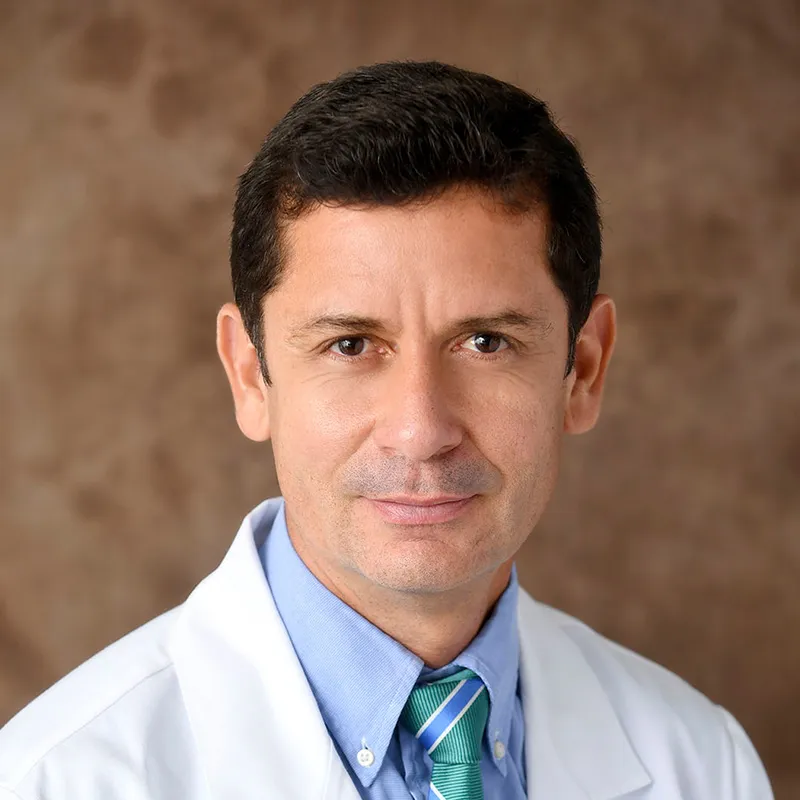
Cesar Bonilla Isaza, MD
Faculty
Electrophysiologist
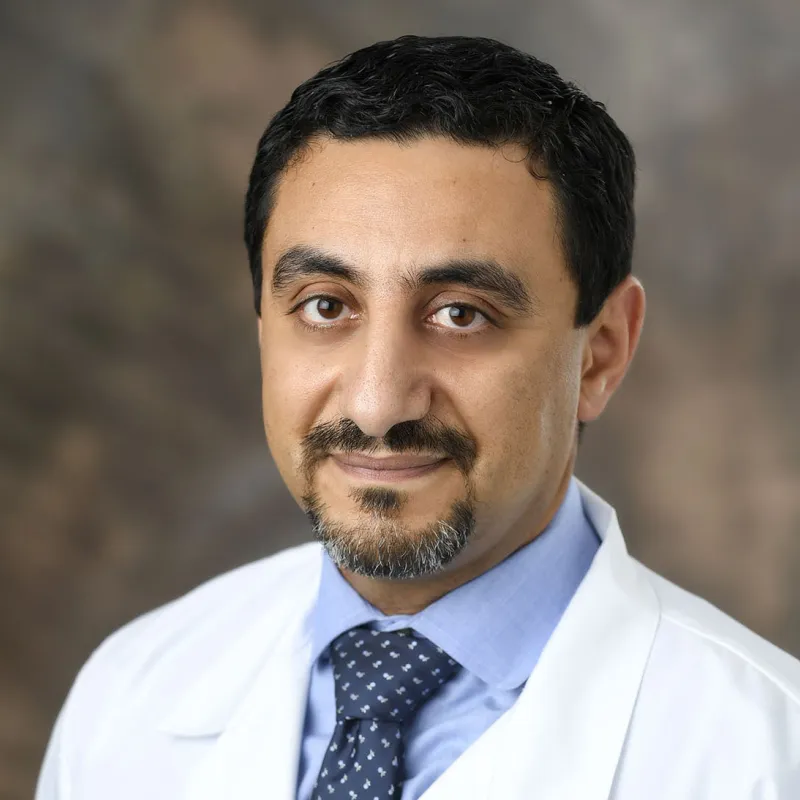
Basiem Barsoum, MD
Faculty
Interventional Cardiologist

Nipun Arora, MD
Faculty
Interventional Cardiologist

Marcos Hazday, MD
Faculty
Hypertrophic Cardiomyopathy
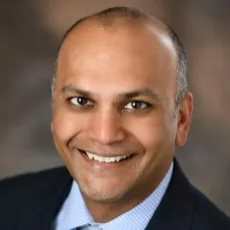
Rajesh Shah, MD
Faculty
Interventional Cardiology
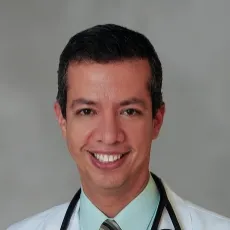
Hector Lozano, MD
Faculty
Echocardiography
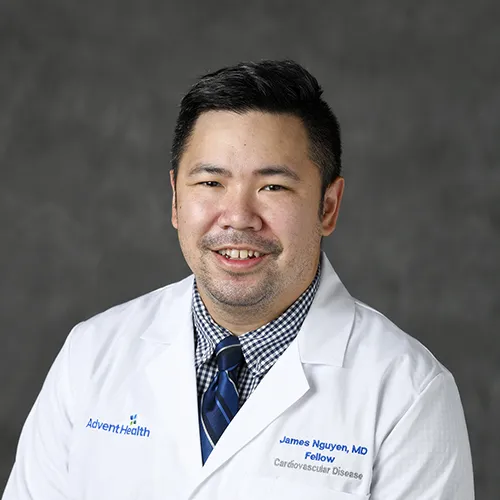
James Nguyen, MD
Faculty
Cardiac Imaging

Phillip Anderson, MD
Faculty
Teaching Faculty
The faculty have trained in numerous geographic locations and have come from prestigious training programs. They are eager to teach you!
- General Cardiology
-
- William Barsoum, MD
- Rodrigo Lago, MD
- Rajesh Shah, MD
- Nipun Arora, MD
- Phillip Anderson, MD
- John Ververis, MD
- Cesar Jara, MD
- Linus Wodi, MD
- Hector Lozano, MD
- Barry Kramer, MD
- Invasive Cardiology
-
- Rodrigo Lago, MD
- Jose Arias, MD
- Nipun Arora, MD
- Rajesh Shah, MD
- William Barsoum, MD
- Rohit Batheja, MD
- Phillip Anderson, MD
- Andrew Taussig, MD
- Electrophysiology
-
- Cesar Bonilla, MD
- Sambit Mondal, MD
- George Monir, MD
- Chandra Bomma, MD
- Usman Siddiqui, MD
- Patricia Guerrero, MD
- Heart Failure/Cardiac Transplant/Pulmonary Hypertension
-
- Stacy Mandras, MD
- Nirav Raval, MD
- Simon Shakar, MD
- Naveen Bellam, MD
- Pujan Patel, MD
- Cardiac Imaging/Echocardiography
-
- Cesar Jara, MD
- Hector Lozano, MD
- Marcos Hazday, MD
- Linus Wodi, MD
- Ashkan Ghaneie, MD
- Cardiac Surgery
-
- Kevin Accola, MD
- Jorge Suarez, MD
- Advanced Cardiac Imaging (CT and MRI)
-
- Cesar Jara, MD
- Adult Congenital Heart Disease
-
- Matthew Zussman, MD
- Rodrigo do Lago, MD
- Nipun Arora, MD
- Zahid Amin, MD
- Nuclear Cardiac Imaging
-
- Basiem Barsoum, MD
- Hector Lozano, MD
- Hypertrophic Cardiomyopathy
-
- Marcos Hazday, MD
- Cardiovascular Genetics
-
- Patricia Guerrero, MD
Current Fellows
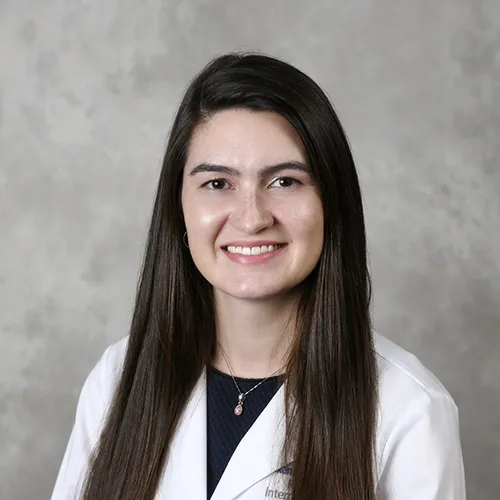
Alexandra Lackey, MD
PGY- 6
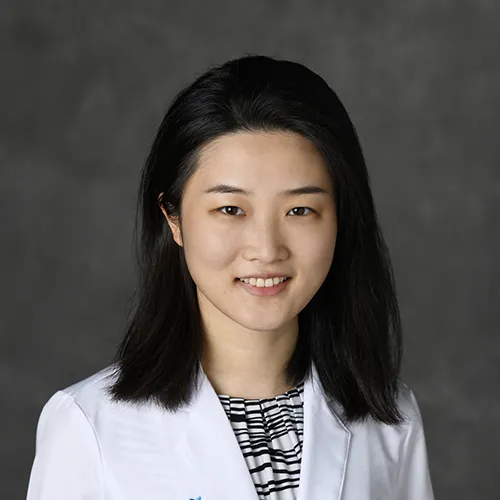
Ling Jin, MD
PGY-6
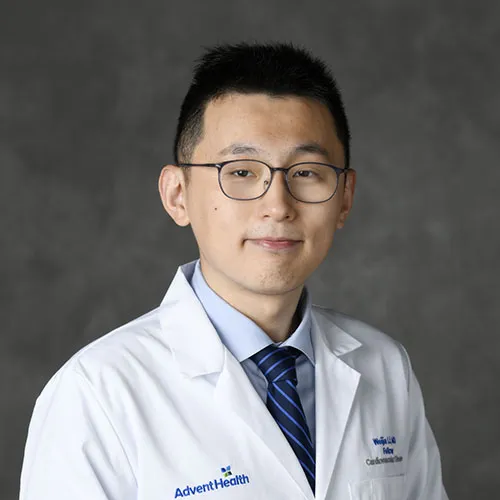
Weijia Li, MD
PGY- 6
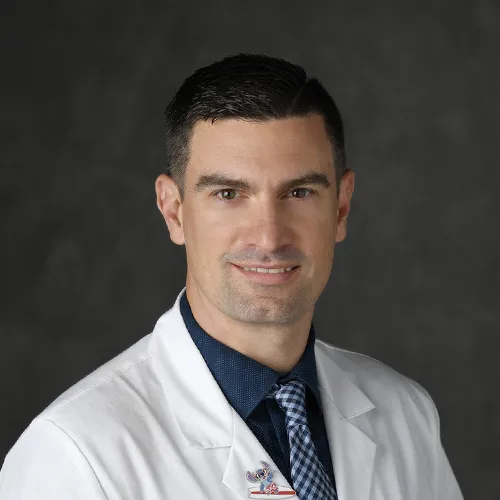
Andrew Crawford, MD
PGY- 5
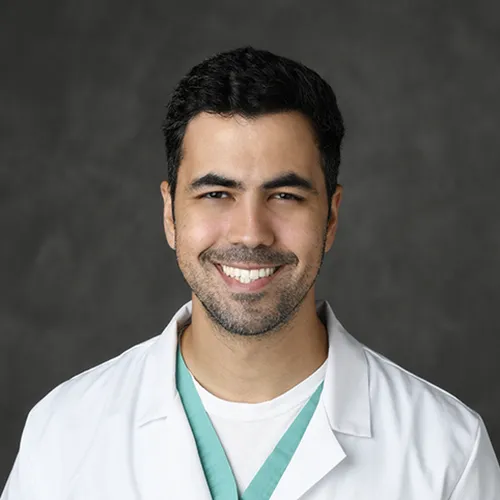
Samuel Brasil, MD
PGY- 5
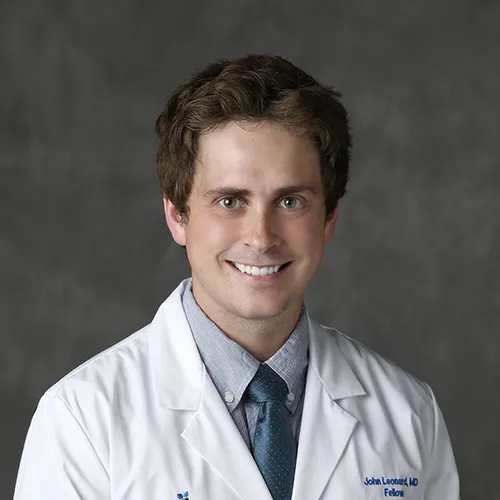
John Leonard, MD
PGY- 5
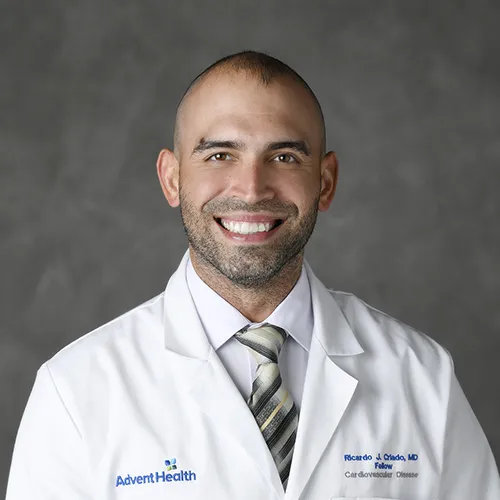
Ricardo Criado Carrero, MD
PGY-4
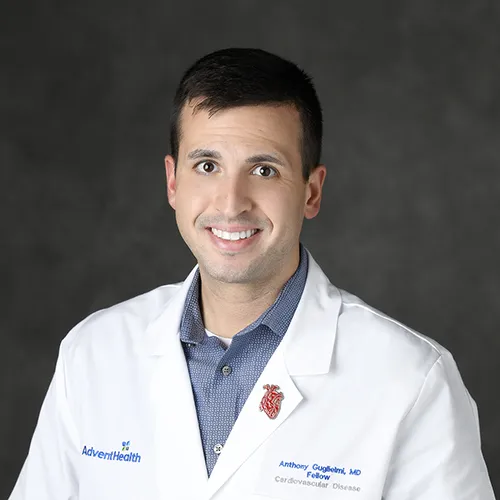
Anthony Guglielmi, MD
PGY-4
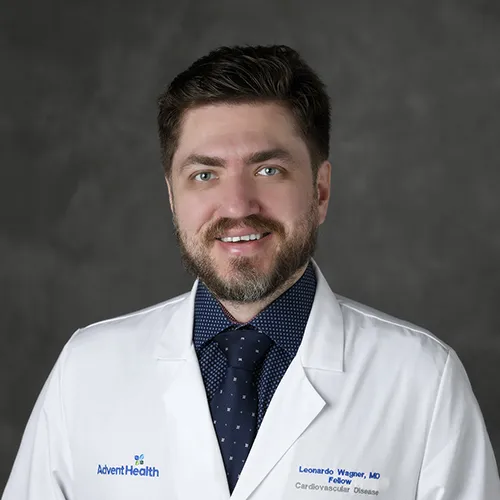
Leonardo Wagner, MD
PGY-4
Cardiology Fellow Alumni
- 2023-2024
-
Name Current Practice Location James Nguyen, MD AdventHealth (Orlando, FL) Xuan Guan, MD, PhD Virginia Mason Franciscan Health (Seattle, WA) - 2024-2025
-
TBA
Core Rotations
The first two years of our Cardiovascular Disease fellowship will offer intensive clinical experiences spanning general cardiology and subspecialty fields in both the inpatient and outpatient settings. The first-year curriculum will immerse fellows in general cardiology, echocardiography, cardiac catheterization, cardiovascular imaging, heart failure, consultative cardiology, and electrophysiology. The second- and third-year curriculum will build upon these skills and incorporate experiences in cardiac transplantation/mechanical circulatory support, vascular medicine, structural heart disease, and adult congenital heart disease. Additionally, fellows will have the opportunity to further explore many of the clinical cardiology subspecialty areas during elective time, in order to tailor their clinical training to their specific goals. Clinical fellows rotate primarily at the AdventHealth Orlando campus with a weekly half day continuity clinic at the AdventHealth Apopka campus.
- Rotation Schedules
-
Program leadership will continuously work optimizing the schedule to maximize clinical experiences.
The schedule is set up of 13 blocks per year consisting of 4 weeks each per rotation.
Core Rotations PGY - 4 PGY - 5 PGY - 6 General Cardiology (Consult Service) 5 2 1 Invasive Cardiology 3 2 1 Electrophysiology 1 1 1 Echocardiography 2 2 1 Stress Testing/Nuclear Cardiology 1 1 0 Heart Failure/Cardiac Transplant 1 1 0 Cardiac Surgery 0 1/2 0 Advanced Cardiac Imaging (CT and MRI) 0 1 0 Adult Congenital Heart Disease 0 1/2 0 Vascular Medicine 0 0 1 Pulmonary Hypertension 0 1/2 1 Cardiovascular Research 0 0 1 Electives 0 2 5 Pacemaker Clinic will also be available as part of the electrophysiology rotations.
- Special Electives Opportunities
-
- Invasive cardiology and cardiac catheterization
- Heart valve program and structural heart disease
- Electrophysiology
- Echocardiography and advanced cardiac imaging
Adult congenital heart disease program
- Rotations Details
-
General cardiology/Cardiology consult service
- Rotation coordinator: Dr. Basiem Barsoum, MD
- One of the strengths of clinical training at AdventHealth Hospital is the remarkable variety and complexity of patients seen during this rotation. Fellows serve as the primary cardiologists on new hospital-wide cardiology consultations and admissions to the cardiac units, cardiovascular observation unit, and cardiac ICU. Although senior staff will provide careful oversight and teaching, the fellow will be the main provider and decision maker for patient care. The patients seen while on service will be expected to be followed as outpatients and form the bulk of each fellow’s practice in the Cardiology Fellows Clinic.
Echocardiography
- Rotation coordinator: Dr. Hector Lozano, MD
- First year fellows develop proficiency in the performance of diagnostic ultrasound, understanding of basic principles and competence in study interpretation. Fellows will also receive direct instruction from senior sonographers in the performance of the echocardiographic examination during their first rotation.
- For second year fellows, emphasis is placed on interpretive skills and advanced procedures, such as stress echo studies and transesophageal echocardiography. Level II training in transthoracic and transesophageal echocardiography imaging can be completed during elective time and/or during the third year of fellowship.
Invasive cardiology/Cardiac catheterization laboratory
- Rotation coordinator: Dr. Rodrigo Lago, MD
- Fellows will be lead operators on diagnostic procedures in the AdventHealth Orlando Cardiac Catheterization Laboratory, a state-of-the-art suite of six rooms with high-resolution digital fluoroscopy units. A high-volume and wide variety of diagnostic and interventional procedures are performed every year. Since AdventHealth Hospital Orlando serves as the primary hospital for the local neighborhood AdventHealth medical facilities as well as a tertiary referral center for high-risk patients from state, national and international centers, cases are varied and often challenging. Fellows will gain a strong foundation in appropriateness and indications for catheterization, protocols for venous and arterial access, the hemodynamic assessment of cardiac, valvular and coronary function, angiography of coronary and bypass vessels and pre- and post-procedural management. Furthermore, the laboratory has a significant academic structure and has multiple active research protocols which will enable fellows to pursue their research interests.
Electrophysiology
- Rotation Director: Dr. Cesar Bonilla, MD
- The AdventHealth cardiac electrophysiology laboratory comprises a state-of-the-art facility that provide advanced arrhythmia services. Fellows on this rotation will gain competence in the interpretation of commonly performed electrophysiology studies, manage inpatients with arrhythmias, learn indications for pacemaker and ICD implantation and become experienced in programming and interrogating these devices. Fellows will participate at the electrophysiology laboratory in procedures to diagnose and treat complex arrhythmias. Fellows will also participate with the faculty in pacemaker and ICD placements.
Nuclear cardiology
- Rotation coordinator: Dr. Basiem Barsoum, MD
- Nuclear cardiology at AdventHealth Hospital provide various types of cardiac stress tests that help to identify and diagnose heart disease. Fellows will learn the integral role of cardiac stress testing in the practice of clinical cardiology, as well as its limitations, by performing and interpreting studies. The second-year rotation will focus on multimodality imaging techniques.
Cardiac imaging
- Rotation coordinator: Dr. Cesar Jara, MD
- Fellows spend a month rotating through the cardiac CT and cardiac MRI facilities at AdventHealth Hospital Orlando and will be acquainted with these imaging techniques.
Heart failure/Cardiac transplant
- Rotation coordinator: Dr. Stacy Mandras, MD
- The management of patients with advanced heart failure at AdventHealth Hospital is a multidisciplinary effort with input from physicians and non-physicians alike. Fellows will be integrated into a team consisting of members of the heart failure and cardiac surgery services by caring for patients with advanced disease and participating in meetings discussing transplant status and patient selection for advanced heart failure therapies. Fellows will gain a solid understanding of the management of severe heart failure and pulmonary hypertension, and assessment of candidates for transplantation and mechanical circulatory support.
Adult congenital heart disease
- Rotation Director: Dr. Zahid Amin, MD
- Fellows will become familiar with the anatomy and physiology and current therapies of patients with congenital heart disease. Fellows will participate in Multidisciplinary adult congenital heart disease meetings and rotate in pediatric cardiology. Fellows will also participate in invasive procedures to diagnose and treat adults with congenital heart diseases in the pediatric cardiac catheterization laboratory.
Vascular medicine
- Rotation Director: Dr. David Varnagy, MD
- Fellows will spend one month becoming familiar with the evaluation and management of patients with aortic diseases and peripheral vascular disease, including carotid artery disease, peripheral arterial disease, renal artery stenosis, complications of venous thromboembolism, and others.
Cardiac surgery
- Rotation Director: Dr. Kevin Accola, MD
- Fellows rotating on the cardiac surgical service and cardiac surgery intensive care unit will gain further experience in the pre- and postoperative care of cardiac surgical patients. Fellows will participate in daily morning rounds with cardiac surgeons and cardiac intensivists. They will attend surgical cases in the operating room, to gain an appreciation of the complexity of cardiac surgical procedures and intraoperative management.
In addition to dedicated subspecialty program selective blocks, two additional weeks on the second year and five on the third year are set aside for elective rotations. The third academic year will offer more elective time to pursue research, academic endeavors and/or complete level II training in cardiac imaging or invasive cardiac catheterization.
Outpatient Cardiology Fellows Clinic:
- One of the most valuable aspects of the cardiology program is the opportunity to be the primary outpatient cardiologist for patients across the three years of training. Many of the first encounters a fellow has with these patients will be during their initial inpatient stay, after which they will be enrolled in the fellow’s clinic. It is an opportunity to learn the fine points of the longitudinal management of a range of cardiac problems in ambulatory patients. Added to this is the challenge of evaluating new patients referred to the clinic by other providers. All fellows are assigned one half a day cardiology clinic per week throughout their 3 years of training. In addition to general cardiology, the Program offers subspecialty clinic experience in electrophysiology, interventional cardiology, heart failure, preventive cardiology, adult congenital heart disease and vascular medicine.
- Rotation coordinator: Dr. Basiem Barsoum, MD
Core Curriculum
The curriculum of the cardiovascular diseases fellowship consists of a variety of clinical experiences and didactic conferences that will take place at AdventHealth Hospital Orlando. Fellows rotate on several inpatient and outpatient services and provide both direct and consultative care. Fellows attend a weekly continuity clinic. Procedural skills are gained as fellows rotate and advance through the invasive and non-invasive laboratories. They will progressively gain extensive experience in cardiac catheterization procedures, electrophysiology procedures, echocardiography and non-invasive vascular imaging, stress testing, and nuclear cardiac perfusion imaging testing. Training in cardiac CT and MRI techniques will be also provided through the joint collaborative programs between the Department of Radiology and Division of Cardiology. This training will take place either on the non-invasive imaging rotation or during an elective rotation dedicated to advanced cardiac imaging. Fellows also have access to the cardiac simulation laboratory where they can practice invasive cardiac procedures.
Several conferences will occur throughout the week and month, and include a core curriculum lecture series, cardiology board review series, journal club, invasive conference, electrophysiology and electrocardiography conference, non-invasive conference (echocardiogram/vascular imaging and stress testing), cardiology Grand Rounds, adult congenital heart disease conference, morbidity and mortality conference, and structural heart conference. These conferences and lecture series provide a forum to progress and advance into the cardiovascular didactic materials, critically review the literature and to debate current topics in cardiovascular medicine.
A final aspect of the curriculum involves fellow involvement in teaching. This occurs in several settings, including direct clinical teaching of Internal Medicine residents on the inpatient cardiology services (intensive care unit, heart failure service and cardiology consult service) as well as assisting in the early training of new cardiology fellows. Fellows are expected to give didactic lectures at catheterization/invasive conferences, cardiac imaging/non-invasive conferences, cardiology board review series, cardiology grand rounds, morbidity and mortality conference, etc.
COCATS 4 (Core Cardiology Training Symposium) is the curriculum guiding document for fellowships in cardiovascular disease. This document consists of the reports of individual task forces which reviewed and made recommendations for training in each of the vital areas of cardiovascular disease. AdventHealth Hospital Fellowship Program in Cardiovascular Disease addresses each Task Force’s recommendations.
Our program core conferences will deliver a structured didactic curriculum to supplement clinical experiences in a variety of learning formats, including traditional lectures, hands-on workshops or boot camps, fellow case presentations, and chalk talks. These conferences include:
| Fellows Core Conferences and Meetings | Frequency |
|---|---|
| Core cardiology Conference | Weekly |
| Invasive conference (Cath conference) | Biweekly |
| Echocardiogram conference | Biweekly |
| ECG lecture series | Biweekly |
| Electrophysiology core curriculum | Monthly |
| Non-invasive conference (Nuclear, CT, MRI) | Monthly |
| Cardiology Grand rounds | Bimonthly |
| Heart failure/Transplant Conference | Monthly |
| Journal Club | Monthly |
| Adult Congenital Heart Disease Conference | Bimonthly |
| Cardiology Board Review Conference | Biweekly |
| Cardiology Oncology | Bimonthly |
| Hypertrophic Cardiomyopathy | Weekly |
Boot Camp for 1st year fellows (PGY4) (over the summer - basic initial hands-on training): Basics of echocardiography, catheterization laboratory, pacemakers/ICD equipment.
Fellows are expected and encouraged to be involved in research from first year and dedicated research time will be provided in the 3rd year. Through integration of research mentorship and clinical training, our fellows will be well prepared for scientific discovery. The approach to research training during the cardiology fellowship training includes mentor identification from the start of training, research plan presentation, and formal structured curriculum focused on approaches to research design, execution and writing. Research interests of the members of the cardiovascular division at AdventHealth Orlando are broad and include studies and clinical trials related to general cardiology and preventive cardiology, invasive and interventional cardiology, structural heart disease, heart failure and cardiac transplant, electrophysiology, and cardiac imaging.

Training Sites
Primary clinical training occurs mainly at the AdventHealth Orlando campus.
The outpatient clinic and non-invasive outpatient training takes place at the AdventHealth Medical Group Cardiology at Apopka.
AdventHealth Winter Garden is the Outpatient Clinic where the Nuclear Cardiology and Echocardiography rotations take place.
Program Information
- Benefits
-
Physician Wellbeing: For more information on the many benefits offered across all programs, click here.
- Diversity and Inclusion
-
AdventHealth Florida as an institution and Orlando as a city have a strong commitment to diversity and inclusion and has been at the forefront of promoting diversity and fighting for social justice in many respects. Our Cardiovascular Disease Fellowship program has strong commitment to diversity at all levels. Diversity and inclusion to us means not only considering race/ethnicity/gender and underrepresented groups in medicine and cardiology but also an individual's background and the distance traveled, or hardships traversed when applying to our program. We understand that a workforce of physicians who better understand the culture and customs of patients from all walks of life has a positive impact on patient care, education, and research. The AdventHealth system has a non-discriminatory and diverse approach to recruiting staff and the same criteria is applied to the fellowship program.
Life as a Fellow
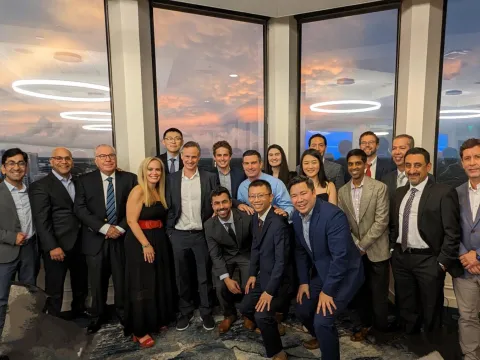
Graduation 2024
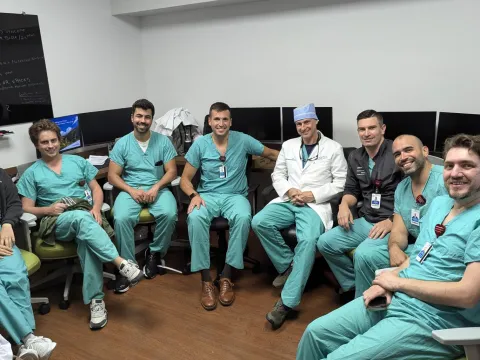
Orientation Day 2024
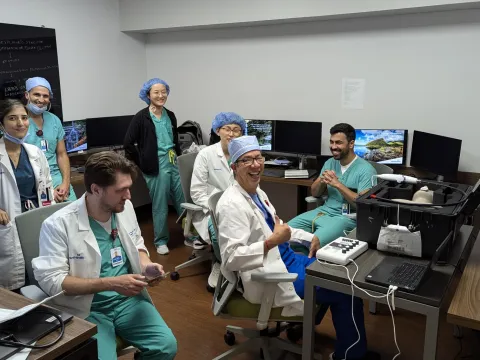
ECHO Didactics
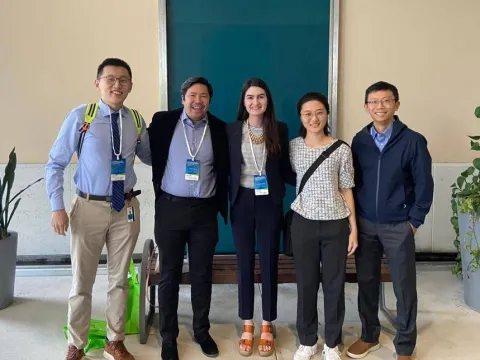
2022 Cardiology Fellows at the ‘Pulmonary Hypertension Conference

Dr. Li Practicing Intra Cardiac Mapping on our VR Headsets
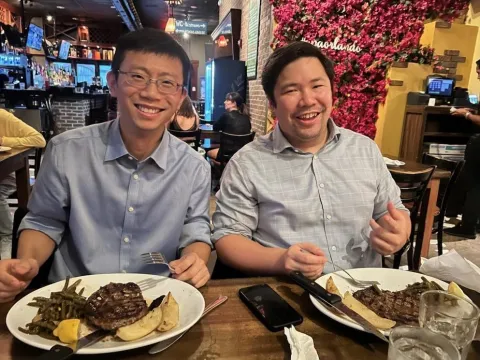
Chief Fellows – Dr. Guan and Dr. James after a Pacemaker Conference ‘ 22
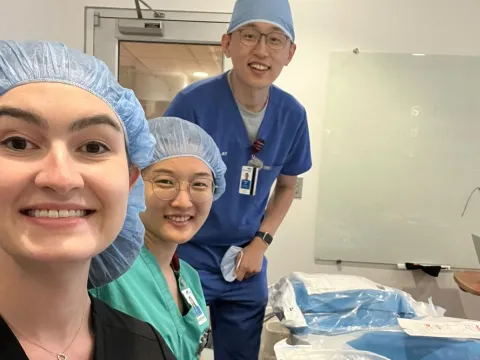
Cath Conference Training
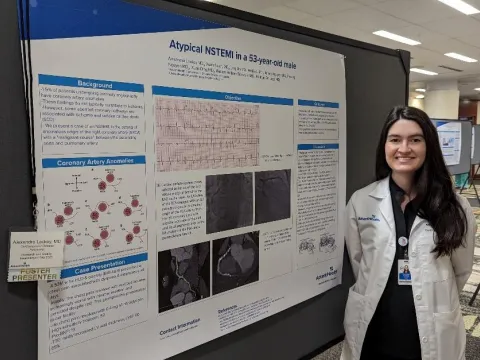
Research Day (Dr. Alexandra Lackey)
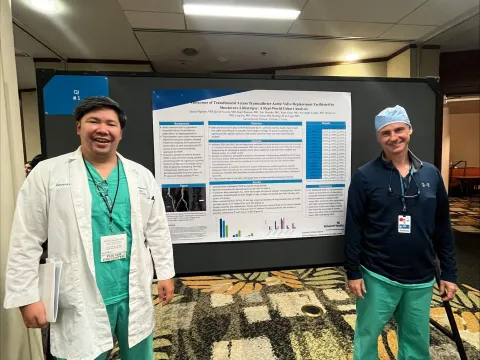
Research Day (Dr. Nguyen and our PD Dr. Lago)

Application Process Join Our Team
We proudly received our ACGME accreditation in January 2021.
Please note we will be participating in the NRMP Match. At that time, all applicants will need to apply through the ERAS website.

Fellowship Coordinator
Contact Information
Holly Nguyen


